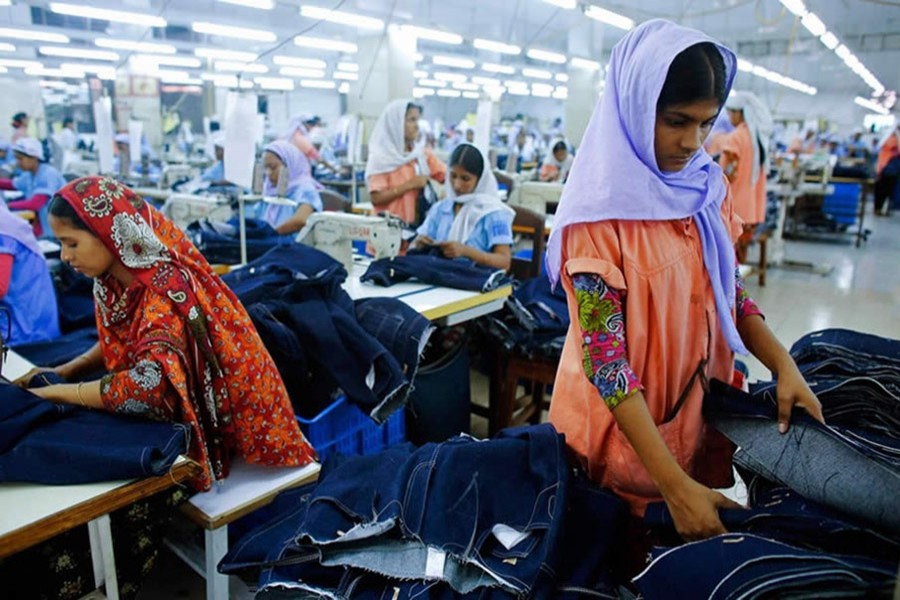Nearly half of the country's ready-made garment (RMG) factories are yet to set up their safety committees despite having legal compulsion, sources said.
Recent findings of the Department of Inspection for Factories and Establishment (DIFE) under the ministry of labour and employment revealed that some 2,174 safety committees were formed until July last.
About 4,795 garment factories are operating across the country, according to the DIFE.
Any factory that employs 50 or more workers must form a safety committee, which would function as per the rules, says the law amended in 2013.
On the other hand, the rules published in September 2015, the existing factories have to form such committees within six months from the date the rules come into effect, while the factories, set up after the formulation of the rules, have to do it within nine months after production starts.
There is also pressure from both local and international arena for setting up such committees at the factory level for ensuring structural, occupational and health safety, the sources said.
The regular inspection conducted by DIFE inspectors found that the rate of forming safety committee and other compliance issues in garment factories, affiliated with either the Bangladesh Garment Manufacturers and Exporters Association (BGMEA) and the Bangladesh Knitwear Manufacturers and Exporters Association (BKMEA), is relatively poor.
When contacted, DIFE Inspector General Shamsuzzaman Bhuiyan said, "We want to create a safety culture and we need support from both the workers and owners."
The DIFE has set target of setting safety committees based on different zones, he said.
Explaining the reasons behind the slow formation of such committees, the DIFE chief blamed the owners' reluctance to comply with the legal requirement.
He admitted that forming such committees would take much time.
Owners should encourage the formation of such committees for the betterment of both the workers and owners, he said.
"Many problems could be solved easily if there is any body or committee in a factory. Both the workers and owners or factory management can discuss the wayout of any crisis."
Explaining the formation of safety committees, ministry officials said trade union representatives would select the safety committee members while participation committees do the same.
If there is no trade union or participation committee, the safety committees would be formed through election, they added.
"Many things made mandatory by the law are just found on document. But in reality, most of them don't exist or practise," Sirajul Islam Rony, a labour leader said adding the factory owners need to change their mindset towards any independent, neutral committee or body in a factory.
If the law of the land is implemented, workers' rights would be ensured and there would be no international pressure, he said.
"Workers can bring any safety or other related concerns to the notice of the management and solve them through discussion," he noted.


